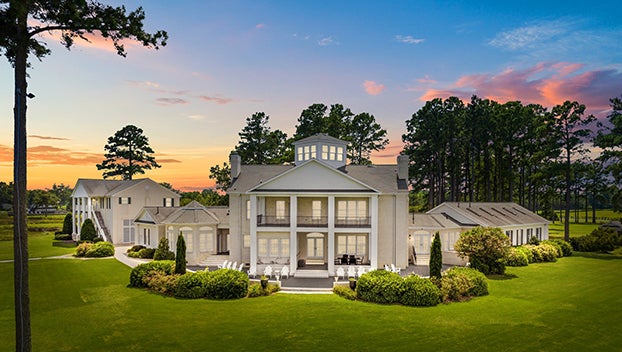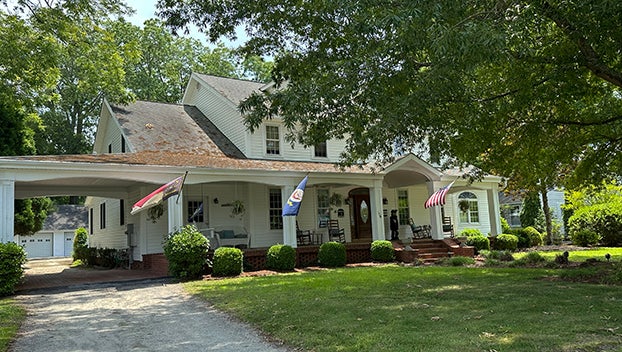Old house, new purpose — community living for female veterans
Published 8:23 pm Thursday, June 29, 2017
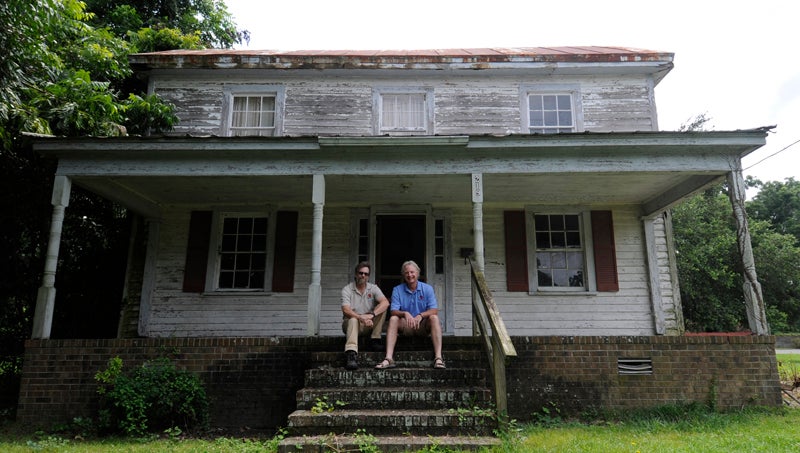
- ROSE HAVEN REST: Pamlico Rose Institute project engineer David Steckel (left) and PRI CEO Rob Greene Sands sit on the front porch of the newly purchased future Rose Haven, a home to help female veterans reintegrate into communities and recover from substance abuse. (Vail Stewart Rumley/Daily News)
It’s weathered and wilting — this circa-1890s farmhouse. Inside, it’s dusty with disuse; outside, the paint has worn away to the original clapboard.
But it sits back a good distance from the street. The lot next door can be leased from FEMA and could one day be a community garden and a towering oak tree shades a quiet backyard. Three bedrooms and a large kitchen are ideal for community living.
That’s what Rob Greene Sands sees when he looks at the house that will become Rose Haven, a reintegration home for female veterans dealing with substance and/or sexual abuse and associated PTSD.
Sands is CEO of the Pamlico Rose Institute, a nonprofit that takes a two-prong approach to building community: preserving history through rehabilitating structures and assisting veterans’ transitions back into a community. Rose Haven is the first project to be implemented; a future project is “pocket neighborhoods,” four or five homes together, rehabbed with communal outdoor space, that will provide affordable housing for disabled veterans.
Rose Haven will provide housing for four to six female veterans at a time. Counseling and other social services will not be a feature, though access to local services will be promoted. Rose Haven aims for recovery through social resilience — creating positive relationships with other veterans and the greater Washington community.
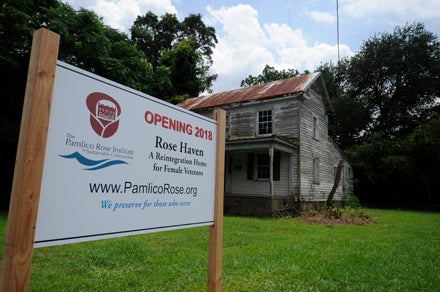
HISTORIC: One of Pamlico Rose Institute’s goals is to preserve history by rehabbing historic homes for use as housing for veterans.
Buying the house was the first step of many.
“The first step was the idea for this whole thing a year ago. There’s been a lot of first steps.
This is just the next step in the journey,” Sands said.
The physical process is in its infancy, and Sands and PRI project engineer David Steckel are trying to get the word out as much as possible, because they’d love to have help.
“David and I are going to work on it, and we hope that some people in the community will find our mission appealing, and they would want to help as well. We hope to galvanize a lot of community support from people that do this for a living, too,” Sands said. “Surprisingly, we’ve had a number of people reach out to us saying they want to swing a paintbrush or cut a blade of grass or clean up the inside. There’s a lot of interest because it’s a worthy cause.”
Sands said their looking for all types of donations: of time, materials, labor.
“The more the community puts in the house, the more of a reciprocal tie there is,” Sands said. “The more the community puts in the house, the house will give back to community.”
In the past, the house has served a prominent role in a community. Sands said, according to North Carolina Preservation restoration specialist John Wood, an African-American woman and her daughter ran a laundry out of the home around 1916, and the person who lived there in the 1930s had a blacksmith business in the barn out back.
“The house is a real testament to the mercantile/cottage industry of Washington, and to the African-American community, as at the turn of the 20th century, it was in a predominantly black neighborhood,” Sands wrote in an email.
Eighty years later, it’s in rough shape, but it’s structurally sound. Sands sees the potential for so much more.
“I think it was waiting to be picked,” he said. “If we can turn this house into something that we really expect to be useful for what we would like, it certainly would help the neighborhood.”
For more information about Rose Haven and Pamlico Rose Institute, visit www.pamlicorose.org.
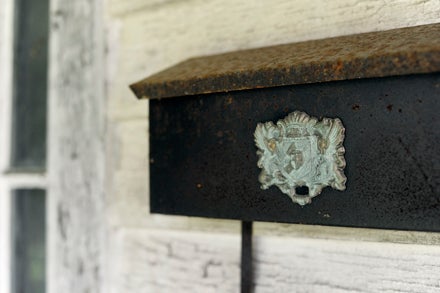
IN THE DETAILS: The circa-1890s farmhouse has its fair share of age, but the beauty is in the house’s history and its details.



